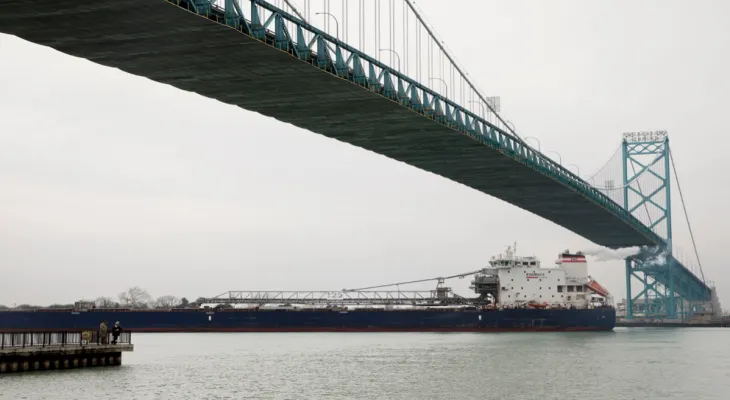Search here
Newspaper
Search here

Arab Canada News
News

Published: February 2, 2025
Canada is preparing to impose escalating retaliatory tariffs in an attempt to rally Americans against the 25% tariffs imposed by President Donald Trump on Canadian goods.
"You will find when we respond, at least initially, that we will focus on imposing tariffs on American goods that are already sold in large quantities in Canada, especially those for which alternatives are readily available to Canadians," according to statements by Natural Resources Minister Jonathan Wilkinson in an interview on Friday, just hours after Trump confirmed his plan to impose tariffs on Canada, Mexico, and China.
U.S. officials informed their Canadian counterparts on Saturday that the tariffs would be applied to their goods on Tuesday, according to sources familiar with the situation.
The comments imply that the initial measures Canada will take in the trade war will aim to isolate consumers while trying to reduce the income of U.S. exporters enough to create political pressure on U.S. representatives, and ultimately, on Trump.
Former Canadian Finance Minister Chrystia Freeland, a candidate to succeed Justin Trudeau as Prime Minister, suggested directly hitting Trump's ally Elon Musk by imposing a 100% tariff on Tesla electric vehicles.
Tariffs on Energy and Metals
Wilkinson said from his office in North Vancouver that Canada wants to avoid tariffs, but if Trump is not deterred, tariffs would expand "gradually," and ministers would not rule out anything from discussions regarding future options.
He clarified: "This would include the possibility of imposing tariffs on goods like energy and critical minerals," leaving the door open for the potential of imposing tariffs to raise costs on oil and gas for consumers and American companies, or on iron ore used in the U.S. steel industry.
Wilkinson pointed out that the government would work with provincial premiers, although the Conservative leader in Alberta opposes taxing its raw exports, and it would be politically difficult for the Canadian government to do so.
It is noteworthy that energy is Canada's largest export to the United States.
Consequences of Tariffs
A glimpse of the impacts of Canada’s strategy was seen on Friday from a post by Senator Susan Collins from Maine on "X" where she indicated that the tariffs "will impose a large burden" on her state, noting that 95% of the heating oil widely used in Maine is refined in Canada, which also supplies all of the jet fuel and diesel to the Bangor station, the airbase in the state.
Canada is the largest foreign energy supplier to the United States, and the two countries have developed a tightly integrated network of pipelines and processing facilities over recent decades.
Refineries in the American Midwest particularly rely on oil, as they were built to process the heavy crude more readily available from Alberta, with little ability to access alternative supplies.
Alternative Solutions
This dispute is pushing Canadian officials to speak more urgently about shifting away from the United States, with Wilkinson looking to a future where Canada has ready export alternatives to its wealthy neighbor.
He added: "People say: well, this might just be a short-term thing, and it could be, but it could also be a long-term structural issue."
Wilkinson hinted that possible solutions include improving rail and port infrastructure to export more to other parts of the world, and building a pipeline linking the oil sands in Western Canada to refineries in the East. The latter is currently fed by Enbridge's pipeline crossing the U.S., which has proven to be a source of tension between the two countries.
Wilkinson said there is also a "renewed focus" on trying to see if there is a way to double the capacity of the LNG Canada project, a massive natural gas export project that will begin shipping fuel from Canada’s West Coast to Asian markets this year.
Comments